Should kitchen cabinets go all the way to the ceiling? The experts weigh up the pros and cons
We've asked the experts for the benefits and disadvantages of running your cabinets up the ceiling. Plus, we've included plenty of design advice, too
- (opens in new tab)
- (opens in new tab)
- (opens in new tab)
- Sign up to our newsletter Newsletter
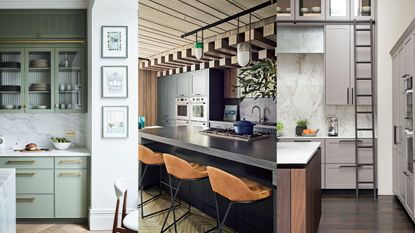

Remodeling a kitchen is one of the top projects in the home, and often the most expensive. This is because a generous kitchen is now the epicenter of modern home life and a hub for cooking, entertaining, working, and more. However, when it comes to kitchen design ideas, storage should be the top priority.
Clever kitchen cabinet and kitchen storage ideas, matched with precision planning, can transform a chaotic space into one that's neat and tidy, so it comes as no surprise that more and more people are asking the common question: Should kitchen cabinets go all the way to the ceiling?
While the decision is entirely personal, it pays to consider the benefits and disadvantages of taking your kitchen cabinets all the way to the ceiling. The main factors to consider are; budget, room size, design preferences, and ceiling height. Once you have taken these factors into consideration, you'll be able to make an informed decision.
Here kitchen designers and decorators reveal the pros and cons of whether you should take kitchen cabinets all the way to the ceiling, and how to approach choosing the best cabinet ideas for the heart of your home.
Why is there a gap between the kitchen cabinets and the ceiling?
In a typical family home, wall-hung kitchen cabinets measure between 32 and 36 inches tall, leaving a space of around one or two feet above. There is a valid reason for the gap between the kitchen cabinets and the ceiling; this is the height that most people can reach by standing on the floor or by using a ladder.
If you don't like the gap between the kitchen cabinets and the ceiling there are some clever and beautiful ways to fill the void. Do consider using trim that can run along the top for a built-in, tailored look, or think about curating a decorative gallery wall of art and crockery for a decorative flourish that is sure to delight and intrigue.
Should I extend my cabinets to the ceiling?
There are many reasons why designers and homeowners alike may want to extend their kitchen cabinets to the ceiling, the main reason would be to increase storage space.
If you’re looking at ways to maximize kitchen space, kitchen cabinets that go all the way to the ceiling provide handy storage and timeless style, making them a great choice for any kitchen design. Suitable for both small and large kitchens, you can integrate them in a way that suits your kitchen layout and your lifestyle.
'I advise clients only to fit floor-to-ceiling cabinetry if they have lofty, high ceilings,' says Tom Howley (opens in new tab), Design Director at the eponymous kitchen company. 'In smaller spaces, waist-height pull-out drawers are the best option. A waist-height unit means you’ll have access to copious kitchen countertop space that floor-to-ceiling cabinetry cannot provide in the absence of an island counter, and lots of low-lying storage units. This will open up the space at head height to give the impression of a more spacious kitchen.'
1. Use a ladder to reach tall cabinets
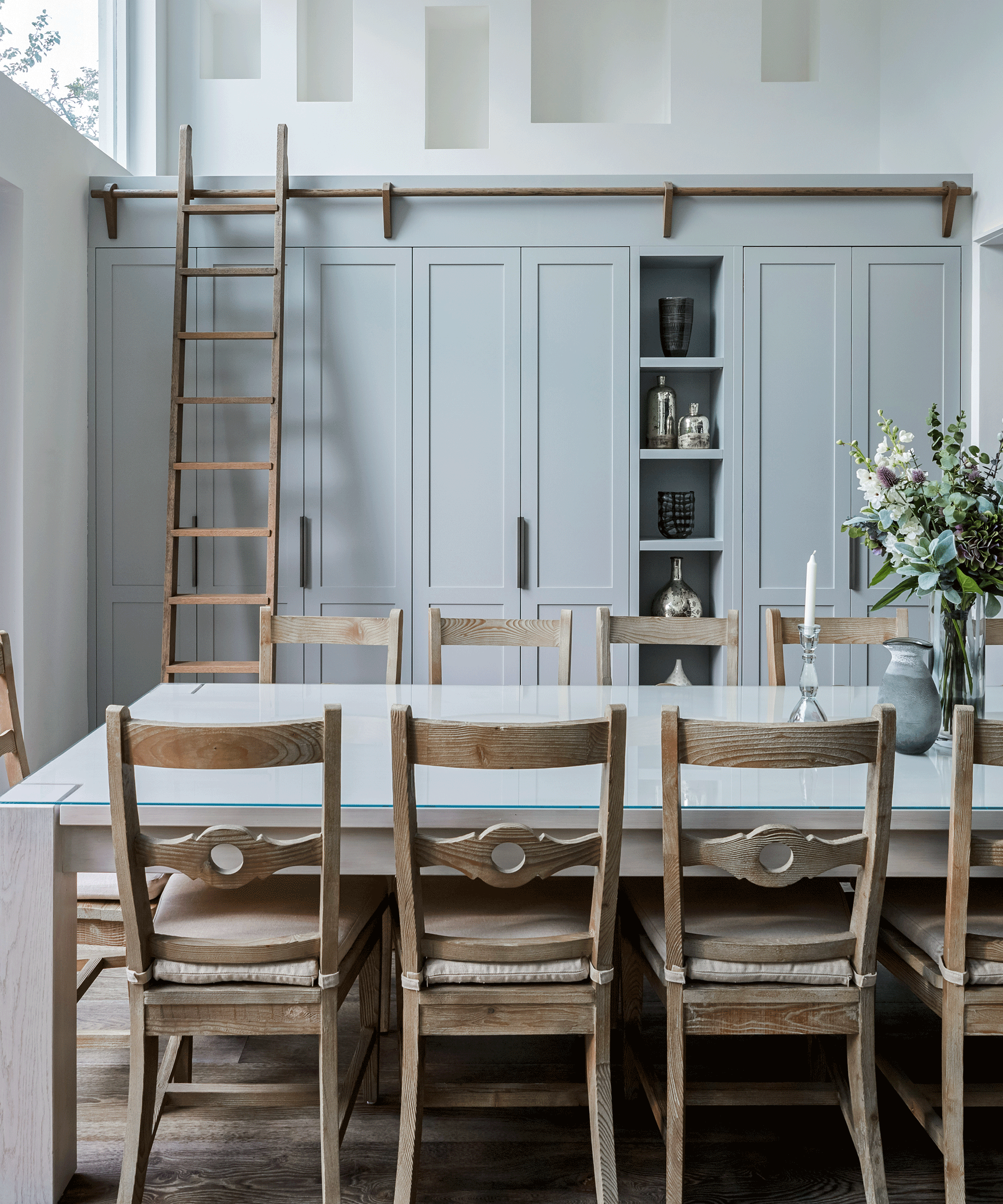
‘There are many bespoke solutions to storage in the kitchen,’ says Jane Stewart, design director at Mowlem & Co London (opens in new tab). ‘One way is to maximize full ceiling heights with a traditional sliding ladder.’ To break up a large wall of storage, use a mix of closed and open solutions. ‘Less frequently used items can be placed on open shelving to be visually enjoyed, while delicate glassware or “special occasion” table linens are best kept in closed cupboards,’ adds Jane.
2. Make the most of every inch
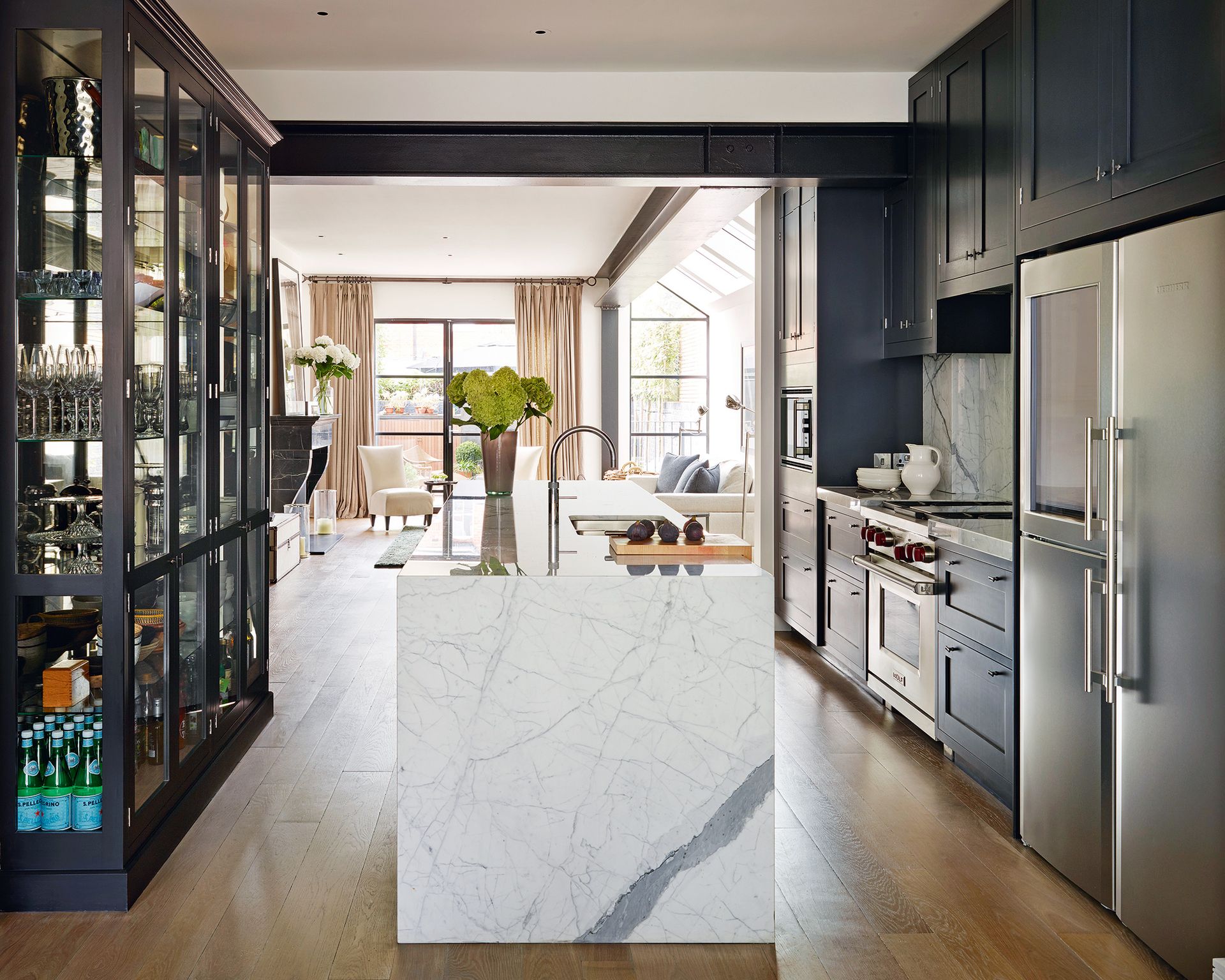
While drawers make great use of space below hip level, you may also want to make the most of the ceiling height of your kitchen with a section of tall, floor-to-ceiling cabinets to house an integrated refrigerator, freezer, and eye-level oven and coffee machine, as well as dry food larder storage.
'The kitchen trend is about introducing plenty of storage hidden behind sliding doors so that you can close down the kitchen when not being used,' says Alex Orosia, Marketing Manager, Porcelanosa (opens in new tab).
Slide and hide systems can create, when closed, a feeling of uncluttered space, with the advantage that everything is within easy reach when open. Pocket doors that open, pivot, and slide into side recesses, leaving contents directly accessible without doors in the way, are also particularly useful here.
3. Use all vertical space
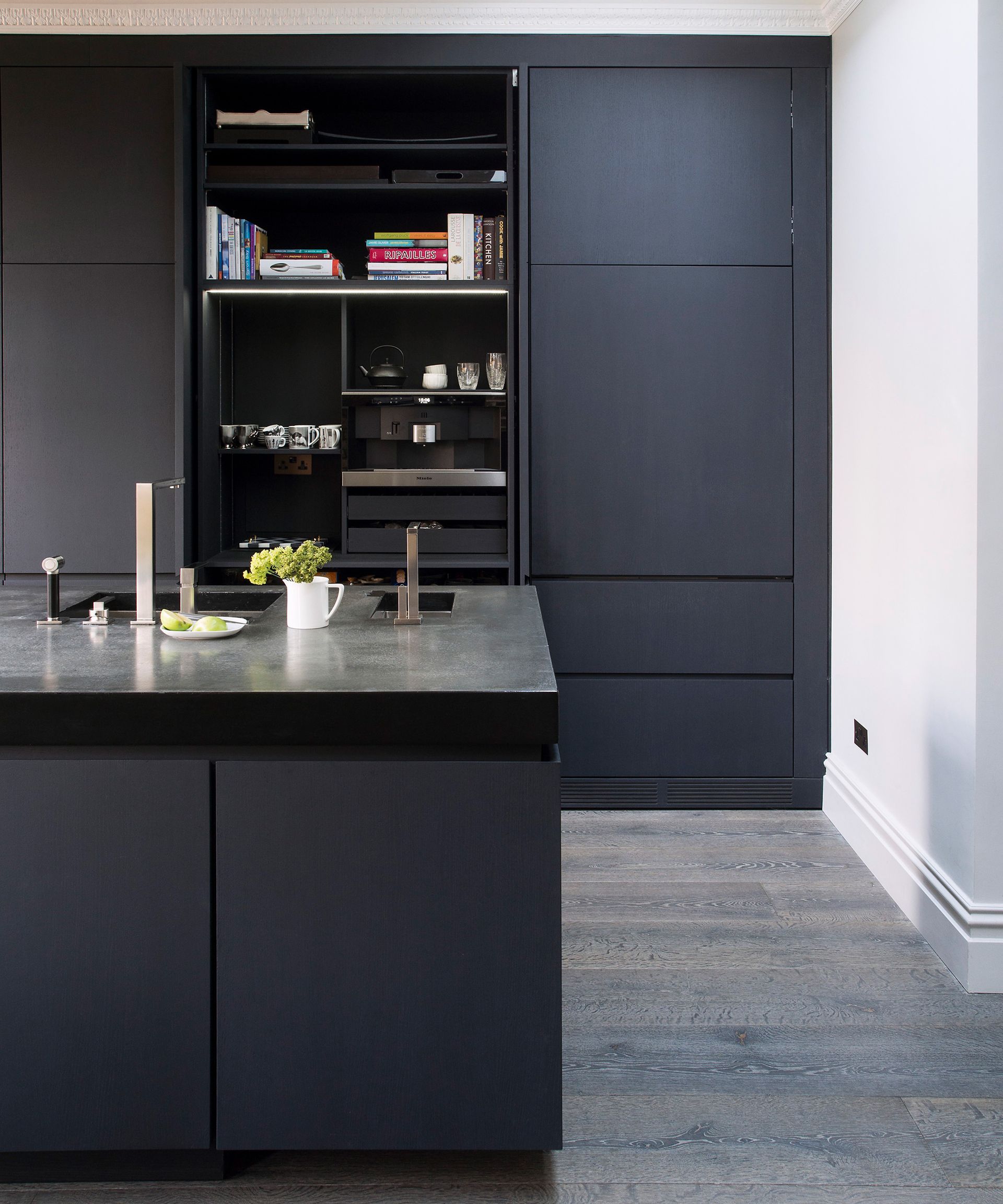
Why waste the storage opportunity of high ceilings – especially if space is limited elsewhere? There is a range of kitchen cabinets to choose from and they can be built floor-to-ceiling with handcrafted doors, open kitchen shelving, or glazed doors; whichever is best for your space. Plus, full-height cupboards offer useful storage for gadgets or crockery you don’t use or need very often.
How do you fill the gap between cabinets and ceiling?
If you have a gap between your kitchen cabinets and the ceiling, then you might well be wondering how to fill this space. Decorating above kitchen cabinets is a wonderful way to fill the space with an attractive feature, rather than just letting it gather dust and dirt.
1. Add LED light fixtures between the cabinetry and ceiling
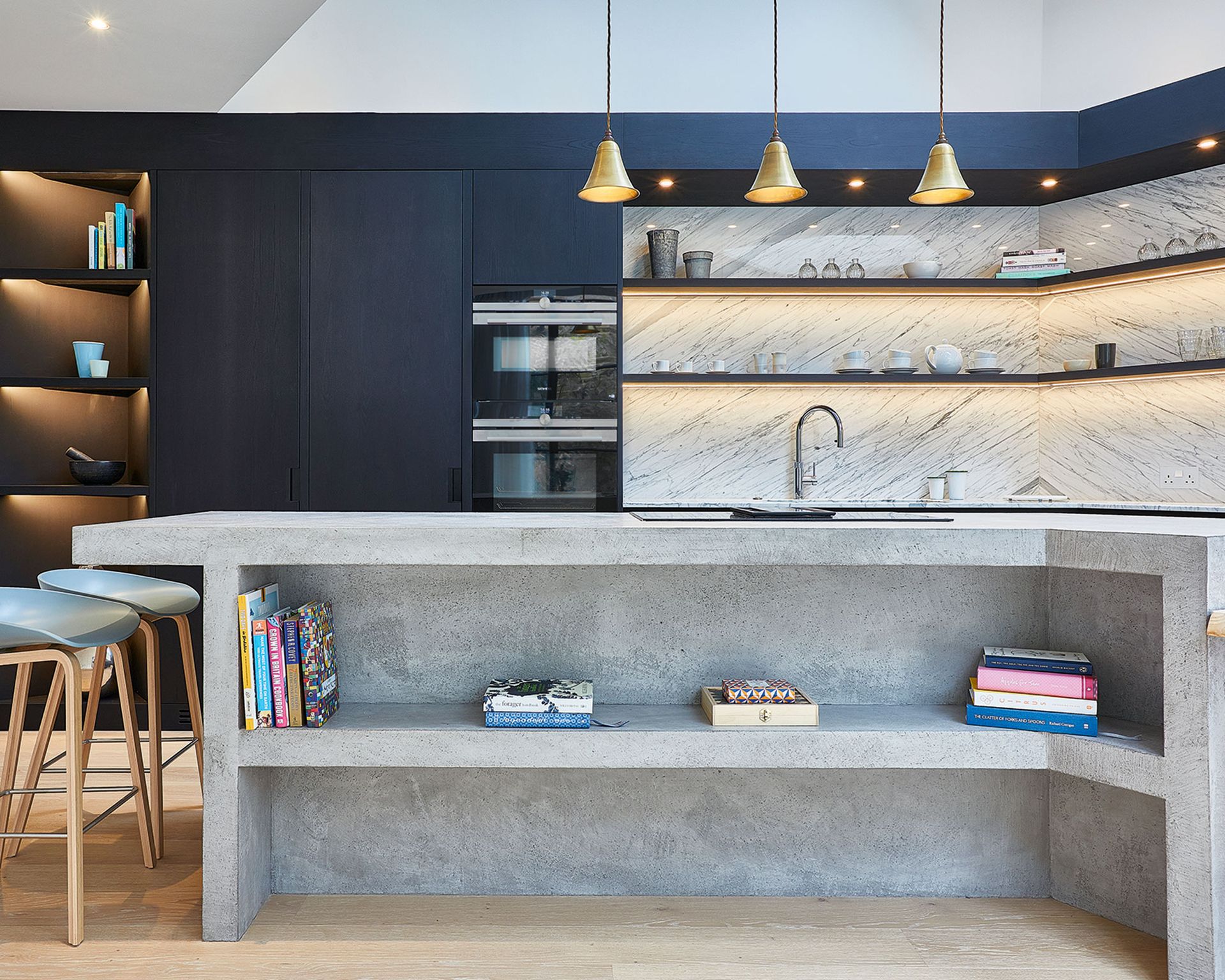
When decorating between kitchen cabinets and the ceiling it can be all too easy to forget about kitchen lighting. However, a few LED strips can go a long way in the kitchen, bringing shelving to life and dialing the mood to relax. The most sophisticated solutions are completely hidden when the lights are off, which requires early discussions with your designer.
‘It is essential to ensure that the LED strips are properly set into recesses within the shelves or cabinetry,’ explains Mark Holloway, managing director, Kitchens By Holloways (opens in new tab). ‘Angling them at 45 degrees, back towards the wall, will achieve the best lighting effect and prevent garish reflections or visible fittings.’
2. Add a decorative flourish
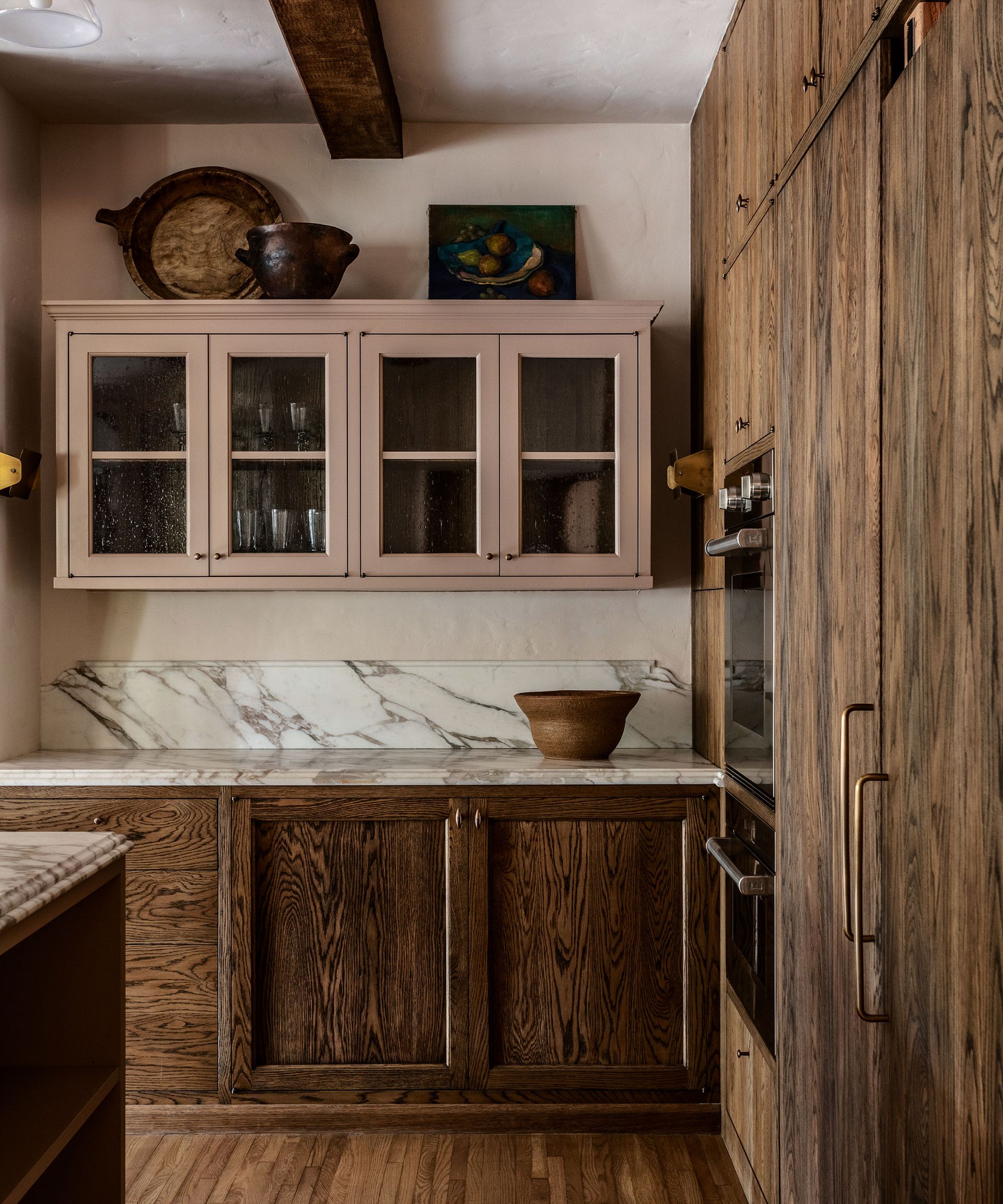
The whole purpose of decorative kitchen ideas is to create beautiful room that answers the needs of the individuals living in them while reflecting their personalities with good design, and that is just what designer Jake Arnold (opens in new tab)has achieved here.
Careful consideration of materials and their placement has the ability to transform your existing kitchen ideas into a decorative room that is truly spectacular. The kitchen of this Californian home is anchored by carefully-chosen ornamental objects above the kitchen cabinets. These materials add interest yet they don’t compete nor do they overpower a room of this size.
3. Draw the eye upwards with decorative elements
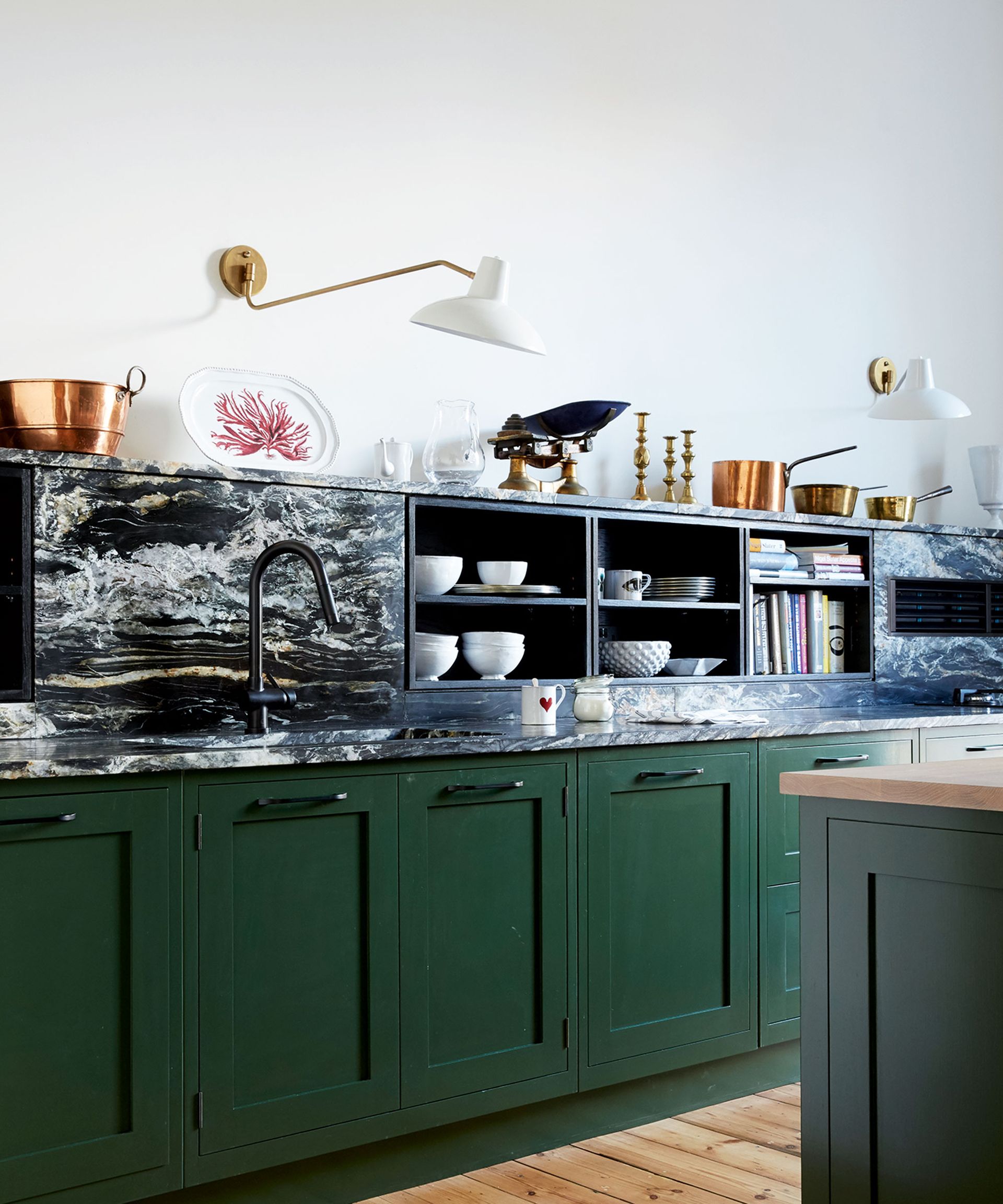
If you have beamed ceilings or simply want to add a decorative flourish above kitchen cabinetry, then think twice before taking kitchen cabinets all the way to the ceiling. This often 'dead' or underused space is the perfect place to curate a display of pretty trinkets, and vintage crockery, or even hang oversized wall lights.
Here in the kitchen of Roddy Murray, founder of interior design practice RJ Murray Design (opens in new tab), is a marble kitchen backsplash providing clever cubby-style kitchen storage within, as well as creating a shelf above to display the couple’s favorite pieces of ornamental kitchenware.

Jennifer is the Digital Editor at Homes & Gardens. Having worked in the interiors industry for a number of years, spanning many publications, she now hones her digital prowess on the 'best interiors website' in the world. Multi-skilled, Jennifer has worked in PR and marketing, and the occasional dabble in the social media, commercial and e-commerce space. Over the years, she has written about every area of the home, from compiling design houses from some of the best interior designers in the world to sourcing celebrity homes, reviewing appliances and even the odd news story or two.
-
-
 Valentine's Day gift ideas 2023: 24 last-minute luxuries for your loved ones
Valentine's Day gift ideas 2023: 24 last-minute luxuries for your loved onesFrom the timeless beauty of a traditional bouquet of flowers to unique houseplants and fun sweet treats, our selection of Valentine's Day gift ideas will be sure to inspire
By Zara Stacey • Published
-
 Robert Pattinson just bought a Spanish Colonial-style home – with an interior designer past
Robert Pattinson just bought a Spanish Colonial-style home – with an interior designer past'The Batman's' Robert Pattinson and Suki Waterhouse purchased the Jeff Lewis-designed Hollywood Hills estate for $5.3 million
By Megan Slack • Published

